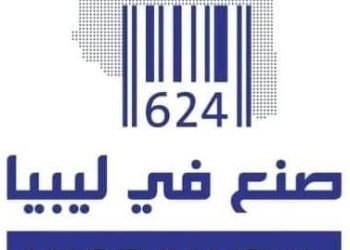By Libya Herald reporter.
![The Tripoli authorities are freezing the import of 32 items through letters . . .[restrict]of credit for 6 months,](http://www.libyaherald.com/wp-content/uploads/2014/05/TripoliPort-300x1891.jpg)
Tunis, 18 May 2015:
The Tripoli-based authorities have passed a decree banning the import of 32 items through letters of credit (LCs) for 6 months as of 13 May.
The Tripoli authorities through their Ministry of Economy circulated the decree to the Tripoli-based Central Bank of Libya, the Customs Authority, the Chamber of Commerce and the Business Council.
Meanwhile, the Tripoli authorities assured that the ban would not affect the basic necessities and foodstuffs as well as raw materials for local industry and consumption.
The move by the Tripoli authorities to freeze the opening of official documentary letters of credit for imports is seen as a move to stem the haemorrhaging of Libya’s fast depleting foreign currency reserves.
It will be recalled that Libya has been forced into making up its deficits over the last few years by dipping into its foreign currency reserves ironically amassed by the outgoing Qaddafi regime over a few decades.
Moreover, the foreign currency shortage has led to the black market exchange rate for the US dollar to peak at two dinars to the dollar, compared to the official rate of LD 1.30 to the dollar.
Equally, the move to freeze the opening of LCs is also seen as an attempt to control the outward flow of Libya’s hard currencies through either exaggerated or fake invoices and LCs.
It is not clear if this move is a short term move to save hard currency or in view of Libya’s low oil production and the collapse in international crude oil prices or if it will be extended beyond November.
Equally, some businessmen have expressed surprise at the timing of the move coming a month before the fasting month of Ramadan, the peak month for consumption in Libya. There are also concerns on the inflationary effect of the import ban on prices in the Libyan market.
It is also seen as encouraging blackmarketeering and as an abrogation of responsibility by the Tripoli authorities for imports and the economy in its region.
Furthermore, this LC import ban is imposed by the authorities in western Libya but not by the internationally recognized government in eastern Libya.
The Tripoli-based authorities have passed a decree banning the import of the following 32 items through letters of credit (LCs) for 6 months as of 13 May:
1-Cars and vehicles – old or new
2-Motorbikes and bicycles
3-Powered boats
4-Cosmetics
5-Entertainment products
6-Toys, and sports goods
7-Papper tissues, napkins
8-Car accessories
9-Leather products
10 -Hunting guns and fireworks
11-Cement and wooden poles
12-Sanitary (bathroom fixtures) products, marble, tiles and ceramics
13-Wood – raw material
14-Carpets, curtains and accessories
15-Leather and non-leader bags (except school bags)
16 -Reinforcement iron bars
17-Mobile phones and accessories
18-Office and domestic furniture
19-Workshop tools
20-Artificial drinks/juices
21-Chocolates, biscuits (except raw material chocolate for manufacturing)
22 -Artificial fruit drink powders
23 – Canned, preserved, dried vegetables and pickles
24-Crisps and corn flakes
25-Fizzy and mineral water
26 – Chlorine and liquid soaps
27 – Pastas
28-Nuts (edible)
29-olive oil
30 –Harissa (spicy chilli sauce/past)
31-Energy drinks
32 -Caviar and sea foods [/restrict]







